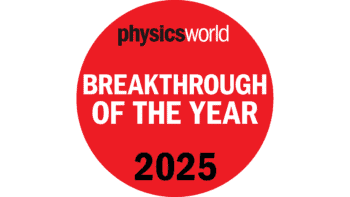John Rigden is a former chairman of the History of Physics Forum of the American Physical Society and author of several popular-science books, including Einstein 1905: The Standard of Greatness (2005 Harvard University Press)

What are the three best popular-science books?
Any reader’s response to a book is influenced by the intellectual and emotional urgencies of the moment. I have read many books I judge good or excellent, but they slip from my mind as I never have the desire, or the reason, to go back to them. The following three books, however, have an ongoing presence in my mind and my regard for them has been sustained over many years.
Arthur Koestler’s The Sleepwalkers gives the reader a first-hand account of great science in the making. Koestler brings together in dramatic fashion 2000 years of man’s evolving view of the universe. His treatment of Kepler and his laws of planetary motion is simply stunning. I have recommended this book to many non-science acquaintances, and, without exception, they are delighted by it and go out of their way to thank me for bringing it to their attention.
As a guide to the early moments of our universe, Steven Weinberg’s The First Three Minutes cannot be beaten. It is one of those books that I go back to again and again.
My final choice is Thomas Kuhn’s The Copernican Revolution. The impact of the Copernican revolution on the mind and spirit of the human species cannot be overemphasized, and Kuhn opens up this momentous scientific advance for the reader. The wonderful graphics alone stay fixed in my mind as they synthesize an array of daily and annual observations. The book explains the subject in a far less abstract way than his much-heralded book Structures of Scientific Revolutions.
What science books are you currently reading?
The most recent science-type book I read is Philip Kitcher’s Science, Truth, and Democracy.I believe this is an important book, but for me it was difficult reading.
What else are you reading?
I just finished J Robert Oppenheimer: The American Prometheus by Kai Bird and Martin Sherwin, and am now reading The Evolution-Creation Struggle by Michael Ruse.
Which popular-science book have you never read, but feel you ought to have tackled, and why?
For some time I have intended to read Abraham Pais’s book Niels Bohr’s Times, In Physics, Philosophy, and Polity. I am perhaps in a minority of one among physicists in believing that the Danish physicist is overrated. I have not read Bram’s book because it is a typical physicist’s worshipful account of Bohr. But I expect that I shall read it soon.
• A review of Bird and Sherwin’s book will appear in the next issue of Physics World.



